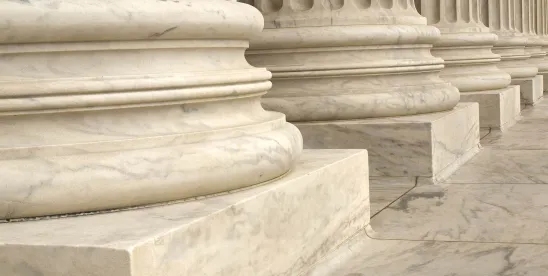Junk faxes.
Who really cares?
The Supreme Court. A lot.
For the second time in five years the U.S. Supreme Court will decide a case arising out of the TCPA’s prohibition on the sending of unsolicited faxes. And the for the second time in five years it will have nothing to do with faxes.
The TCPA is fast-becoming the U.S. Supreme Court’s favorite vehicle for determining esoteric civil procedure questions–this is perhaps unsurprising given how hotly litigated the statute is. And although the TCPA is supposed to be the crown-jewel response of the federal government to the robocall epidemic the statute is famously pursued by hungry Plaintiff’s attorneys eager to collect $500.00 per call in class actions against legitimate American businesses making consented calls–not the offshore scammers that drive Americans crazy.
The incredibly high-stakes of TCPA litigation–that can commonly see exposure against major brands exceeding a billion dollars–means every change in the law can have a massive impact. And given that federal courts across the country are tasked with interpreting the statute daily the resulting patchwork of precedent can be incredibly difficult for businesses to navigate.
Enter the FCC.
The FCC had traditionally been given presumptive authority to interpret the TCPA’s vague terms and implement rules and regulations for the statute’s proper application. It has published hundreds of pages of such rulings over the years–creating a helpful (if somewhat convoluted) guide for those hoping to understand telecom law in this country.
The FCC’s rulings have traditionally been afforded extreme deference under something called the Hobbs Act. The Hobbs Act is a procedural rule that prevents district courts from questioning the actions of the FCC. What the FCC says goes in TCPAWorld. And that’s not a bad thing since it helps assure uniformity across the country and helps assure everyone plays by the same rules.
But the current Supreme Court is hellbent against allowing independent expert agencies make the law– it insists the law be dabbled out in drips by individual courts applying the law in individual cases.
To that end the Supreme Court recently decided Loper Bright–that killed Chevron deference, the idea that courts must defer to agency rulings interpreting vague statutes.
But the Hobbs Act is more powerful than Chevron deference. It complete strips a district court of power to review agency action where certain rules are followed. But the Hobbs Act does not apply to all agencies– mostly just the FCC and the Atomic Energy Committee. These are powerful agencies with the most powerful protections the law can afford.
To get to the Hobbs Act, therefore, the Supreme Court needs the legal equivalent of a bunker-busting bomb– and the TCPA is that weapon of choice.
The Supreme Court has attacked this target before. Even before Loper Bright the Court decided PDR Resources narrowly side-stepping the critical issue of whether the Hobbs Act limits district court powers– it was a near miss for the FCC and the TCPA.
But the Supreme Court is back in McLaughlin Chiropractic Association v. McKesson Corp, another junk-fax case, and it seems absolutely determined to do the job this time.
Assuming the Supreme Court does destroy or limit the Hobbs Act the results would be extreme and immediate for the TCPA– NONE of the FCC’s previous guidance would be beyond reproach. Everything it has done would suddenly be open to attack at the district court level. And nothing would be certain any longer.
Let’s take the basics– express written consent. The TCPA only requires “express consent.” Writing is not required. Written consent is only required because the FCC has said so and made a rule to that effect.
While the rule may still stand, the death of the Hobbs Act would mean every TCPA defendant sued for a violation of the PEWC requirements could independently challenge that rule. And the result, of course, is chaos– many courts would undoubtedly enforce the FCC’s rules still. But some will not. And that will encourage wholesale violation of existing doctrine.
Translation: more unwanted robocalls.
These are wild times.
More to come here.




 />i
/>i
